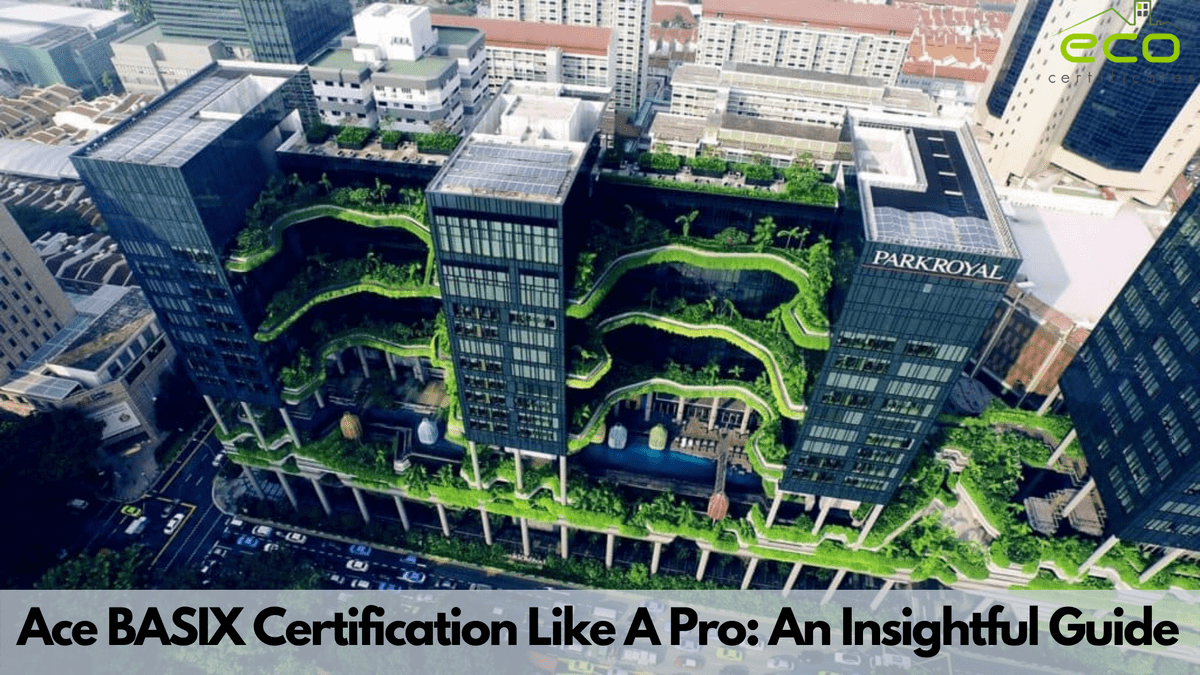
Innovative buildings are an indication of development. We expect a developed city or a state to have numerous buildings and structures.
These structures catch people's attention and have a positive mental impact. On the other hand, developing or renovating structures necessitates a plethora of legal procedures.
Acquiring a BASIX certificate for a building is an example of such a legal procedure. BASIX is among NSW's most powerful sustainability planning tools.
BASIX standards are a criterion for analysing your residential development's energy and water use and thermal comfort.
What Is Meant By The BASIX Certificate?
- The Building Sustainability Index or BASIX is an online planning tool that aims to reduce the environmental effect of new or modified residential construction.
- On July 1, 2004, the BASIX certificate was incorporated as a component of the development clearance procedure in NSW.
- The 1979 Environmental Planning and Assessment Act governs it. An accredited BASIX assessor usually performs a BASIX assessment.
- However, to avoid complications in the later stages of your project, you'll need to ensure to furnish the correct information in the BASIX report.
An experienced professional with the required qualifications can help you with that! Professional building consultancy services cover everything from preparing BASIX certificates for small houses to large-scale multi-unit developments.
Contact the BASIX consultants for a cost-effective energy assessment service today!
How Is BASIX Certificate Different From BASIX Report?
- The BASIX report and the BASIX certificate provide similar information about your residential development. However, unlike the report, the BASIX certificate is a legal document.
- There is no charge for obtaining a BASIX report; it is provided solely for informational purposes and to avoid any mistakes in the final certificate. BASIX certificate requires a certain fee.
- Before generating a BASIX Certificate, you can display the report to your builder, client, or architect. It will help to verify if the proposed commitments are appropriate.
When Does A BASIX Certificate Become Necessary?
Residential construction cannot commence until a BASIX certificate is provided and your project plans match the BASIX certificate's specifications. BASIX is necessary for the following tasks:
- All new residential construction
- Home improvements and upgradations that costs around $50,000 or above
- Pools with a capacity of 40,000 litres or above.
What Is The Validity Of BASIX Certificates?
- A BASIX certificate is valid for three months (after issuing)before submission to an authorised certifier or the council.
- Once submitted to the council or an authorised certifier, your BASIX certificate is valid for the duration of the development application.
- If you don't submit your BASIX certificate within three months, you'll need to get a new one. This will result in further charges.
How To Obtain The BASIX Certificate?
To obtain a BASIX certificate for a new project, visit the NSW government planning department's official website and read through all the information. You'll need to use the BASIX tool, input the required project details and meet the minimum sustainability standard to generate the certificate.
You can also employ BASIX consultants to assist you in obtaining a BASIX certificate swiftly by handling the paperwork and other approvals. These experts are skilled professionals with exceptional knowledge in the building industry.
Advantages Of A BASIX Certificate
There are several positive aspects of getting a BASIX Certificate for your building, which include:
- Reduced environmental impact by using fewer fossil fuels
- Greater comfort through excellent ventilation and natural lighting
- The higher value of buildings due to the prolonged cost savings
- Reduced energy bills.
Criteria For The BASIX Assessment
NSW's BASIX certificate verifies that your upcoming construction project meets the NSW Government's sustainability goals. The following are the essential aspects of energy-efficient accommodation:
- Building position — Properly orienting a home improves passive solar design concepts. Great designs benefit from the sun's free natural warmth in the winter and the cooling breezes in the summer.
- Landscaping
- Use of insulation
- Room layout on the inside
- Use of energy-saving appliances.
- Placement, size, shading, and type of windows
- Circulation of air inside the building
- Sealing or draught-proofing
- Construction material with heat-reflecting and heat-absorbing properties.
Conclusion
It is one of the best steps implemented by the NSW government to ensure that new environmentally suitable dwellings are designed and built, resulting in lower GHG (greenhouse gas) emissions and a more secure future for coming generations.
Contact the professional BASIX experts to get a quote for BASIX services. They have extensive experience providing the best and most affordable energy assessment services.